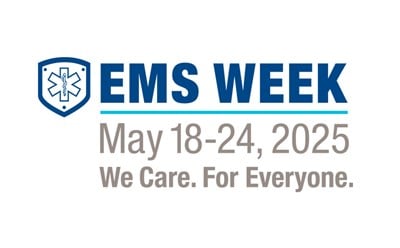WASHINGTON, D.C.—Diagnosing EVALI—the e-cigarette, or vaping, product use associated lung injury illness that’s recently garnered national attention—can be challenging. Initial symptoms may resemble pneumonia or go unrecognized, according to case analysis in the Journal of the American College of Emergency Physicians (JACEP) Open, a new open access journal.
“Electronic cigarettes and vaping products are sending thousands of smokers, especially teens, to emergency departments,” said Kaitlyn Works, MD, an emergency physician with Vanderbilt University Medical Center and lead study author. “We must be crystal clear with young people: E-cigarettes and vaping products are not a healthy alternative to smoking. They can be dangerous, cause injuries and illnesses, or even death.”
The analysis, “E-cigarette, or vaping, product use associated lung injury (EVALI): a case report of a pneumonia mimic with severe leukocytosis and weight loss,” details the case of a 20-year-old male with no significant medical history who was hospitalized for four days then left against medical advice, only to return to the emergency department for chest pain, fever and shortness of breath. For two weeks leading up to his emergency, he had a productive cough, fever, diarrhea, nausea and significant weight loss.
“This flu season we are seeing an additional layer of complexity—EVALI symptoms may resemble pneumonia and become more dangerous or deadly when left untreated,” Dr. Works said. “A patient with EVALI may have symptoms that vary and overlap with many illnesses, making it more complicated to diagnose.”
Accurate diagnoses typically include the ruling out of other infections, autoimmune disorders or other conditions. In this case, negative tests were returned for strep, HIV, hepatitis and other diseases. A camera was inserted through the patient’s airway to examine the lungs and a pulmonary consultation and CT scan confirmed EVALI.
The authors also note that nearly one-third of EVALI patients require intubation and mechanical breathing help.
As of January 2020, a total of 2,602 hospitalized EVALI cases have been reported in all 50 states, DC, Puerto Rico and U.S. Virgin Islands. Fifty-seven deaths have been confirmed.
CDC has identified vitamin E acetate, a thickening agent in many e-cigarette or vaping products with THC as a “chemical of concern” among EVALI cases. CDC recommends that people do not use e-cigarette or vaping products with THC.
“The simplest way to avoid EVALI is to avoid these products,” Dr. Works said.
 American College of Emergency Physicians
American College of Emergency Physicians







